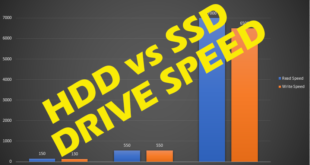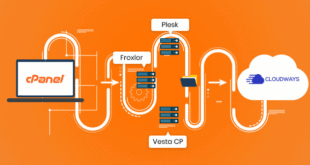 There are two main types of dedicated hosting – managed and unmanaged –both of which have their advantages and disadvantages. A managed hosting plan puts the responsibility of ensuring optimal server performance in the hands of highly trained hosting staff/administrators. An unmanaged plan gives you the freedom (and burden) of overseeing server updates and maintenance tasks, while also costing less on a monthly basis. If you’re having trouble deciding between unmanaged and managed dedicated hosting, consider the following three factors to determine which type would be most suitable for your skill level and needs:
There are two main types of dedicated hosting – managed and unmanaged –both of which have their advantages and disadvantages. A managed hosting plan puts the responsibility of ensuring optimal server performance in the hands of highly trained hosting staff/administrators. An unmanaged plan gives you the freedom (and burden) of overseeing server updates and maintenance tasks, while also costing less on a monthly basis. If you’re having trouble deciding between unmanaged and managed dedicated hosting, consider the following three factors to determine which type would be most suitable for your skill level and needs:
Server Administration Duties
With an unmanaged hosting account you have to keep up with the responsibility of installing/updating software, applying patches, performing operating system restores and kernel operations, and monitoring security and applications. Of course, without knowledge in server administration your experience with an unmanaged hosting account would be a learning experience that could turn out to be frustrating if you’re not technically inclined. On the other hand, web hosts that offer managed dedicated hosting plans include all of the services needed to keep your web server performing optimally, including network monitoring, software upgrades, performing hardware replacements when necessary, and ensuring that the appropriate security precautions are taken, in regards to virus and hacking protection, to prevent data loss/damage.
Support and Reliability
Although an unmanaged hosting account requires you to perform administrative tasks, there is some level of support offered, as you can receive assistance in handling technical issues. Even so, most managed dedicated hosting plans provide some of the best customer service/support available in the industry, and are therefore recommended for serious online entrepreneurs that need access to the most responsive and informative guidance. With that said, the reliability of any hosting plan depends on the capabilities and knowledge of the staff in charge of administering the hardware and its software components. In other words, a proficient server administrator could ensure optimal reliability in an unmanaged account, while most average users would be safer choosing a reputable provider of managed dedicated hosting.
Simplicity and Control
 When it comes to simplicity, managed hosting is definitely the ideal choice, as you’ll only need to take care of the front-end interface, and won’t be burdened with the responsibility of performing routine administrative maintenance. While both managed and unmanaged dedicated hosting accounts give the user full control over server configuration settings, unmanaged plans mandate that you monitor and adjust the settings properly in order to ensure error-free operation. In many unmanaged hosting plans you’ll also have to choose which operating system you want to install on the server, and go through with the process of installing it. Thus, a managed dedicated server is an ideal option for anyone who wants to have the freedom to experience with server configuration settings, but doesn’t necessarily want to be obligated to perform maintenance tasks regularly.
When it comes to simplicity, managed hosting is definitely the ideal choice, as you’ll only need to take care of the front-end interface, and won’t be burdened with the responsibility of performing routine administrative maintenance. While both managed and unmanaged dedicated hosting accounts give the user full control over server configuration settings, unmanaged plans mandate that you monitor and adjust the settings properly in order to ensure error-free operation. In many unmanaged hosting plans you’ll also have to choose which operating system you want to install on the server, and go through with the process of installing it. Thus, a managed dedicated server is an ideal option for anyone who wants to have the freedom to experience with server configuration settings, but doesn’t necessarily want to be obligated to perform maintenance tasks regularly.
Conclusion
If you are a successful webmaster who needs access to a lot of bandwidth and disk space but is not very experienced in server administration, a managed dedicated hosting account will give you the server resources needed, yet keep you from being overburdened with managerial duties. If you are proficient in web server technology and the utilization of UNIX-based operating systems, you can save money and gain greater control over your online operations by opting for an unmanaged account. In essence, every webmaster should start with a managed form of hosting, before progressing to an unmanaged solution after obtaining the necessary knowledge or hiring a dedicated team of IT specialists.
 Cheapest Linux VPS Home for Cheap Virtual Private Server
Cheapest Linux VPS Home for Cheap Virtual Private Server 


